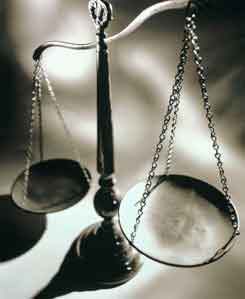 What is the logic behind dreams? Is dreaming only a pale imitation of our waking abilities, as some say, or does it represent an entirely different ability? This question has forever shadowed the scientific exploration of dreams.
What is the logic behind dreams? Is dreaming only a pale imitation of our waking abilities, as some say, or does it represent an entirely different ability? This question has forever shadowed the scientific exploration of dreams.
The question can be summed up as: is dreaming a failure of cognition, a breakdown of logic, and otherwise deficient OR is dreaming an accomplishment of cognition, a creative fire that burns bright inside us, the original inspiration behind art, genius, and even religion?
It’s always been Either/or. Madness versus Creativity. Proto-mammalian gibberish versus Spiritual Ascent.
Thankfully, researcher Don Kuiken from the University of Alberta is questioning this false dualism. His paper at the Montreal Dreams conference was one of my favorites because of its far-reaching implications. Kuiken simply asked, “What if dreaming is both?” Focusing on the anomalies of dreams – those discontinuities of scene, memory, and thought – Kuiken illustrated how dreaming cognition can be seen as a “failure” and an “accomplishment” at the same time.
Take reflective awareness, for example (a favorite topic of mine). In most dreams, we are absorbed in the drama of the dream, so much so that we never stop to think, “Hey, I graduated from high school 15 years ago, and I really don’t need to worry about where I”m going to sit at the lunch table any more.” No, we have single-minded absorption to a very high degree, and we don’t question this anomaly at all. The cognitive psychologists have labeled this a “deficiency” because we”d never be fooled by this shenanigan in waking life.
Kuiken then notes that this absorption in the dream has its own logic. Our “encapulation” in the dream scene allows long-term memories to come to consciousness, and we participate fully within this drama, to a degree that is generally impossible when awake. So we can think of this bizarre emergence as a “coming to light,” Kuiken says, that would not be possible if our thinking was not simultaneously deficient (too single-minded) as well as a marvel (total participation allowing a revelation of deep emotional material).
Heidegger was then dragged into the fray, as his understanding of Logos can handle this sort of ambiguity. Based on Aristotle’s hermaeneia, Heidegger envisioned logos as the hidden order of things. More specifically: Logos is the uncovering of the hidden order. This view of logos works well with dreaming thought and experience, which naturally lends itself towards making connections with deep emotional traces, as well as the revelation of conceptual and metaphoric similarities. IN other words, this muddy thought has its own poetry.
Dreaming has its own logos, and the question still remains how can we switch back and forth between these different modes of consciousness for thousands of years, yet still fundamentally misunderstand them? We’ll have to discuss this in a dream to really close the loop.
Challenges to false dualisms always welcome! 🙂 Like most, this one seems almost childish once you step past it. I mean, surely what we’ve generally accepted from Freud implies that waking consciousness is a bit of both? Intention and rationality persistently subverted by unconscious derailment.
More and more it seems to me that living life forces you to acknowledge the centrality of paradox to the whole show. Then, any system of thought or analysis that can’t embrace paradox becomes a less and less satisfactory model of the world.
Just been reading a brilliant book by Tom Cheetham on Henry Corbin’s Sufi studies, and he notes that Corbin translated an Arabic term roughly meaning “ambiguity” with the Latin term “amphibole”, which literally means “to throw on both sides”. It’s used in describing the simultaneously immanent and transcendant nature of Christ’s incarnation.
Do we need another word? “Paradox” is good, but has a certain connotation of being a problem or conundrum. Maybe appropriate – I’m not sure taking the double-sided nature of things on board guarantees an easy ride!
One small point here is the your example – the lack of reflective awareness is clearly a “deficiency” from the point of view of another state of consciousness where that awareness is more prevalent. Again, I thought with Freud (at least) we stepped past the blunt judgement of dream states by waking standards (though of course he ended up siding with the ego in the end).
Wow, that smiley’s jumpin’!
Thanks for stopping by, G. you nailed it: rationality exhibits autocratic behavior; it’s always judging (and slicing, and dicing) other organic systems into tiny pieces of random.
Luckily, mystery bends like reed.
Anyhow, you’d be suprised how many contemporary dream theorists discuss dreaming consciousness like its psychotic ie. not terribly good at math. I’ll try to dig up some examples soon.